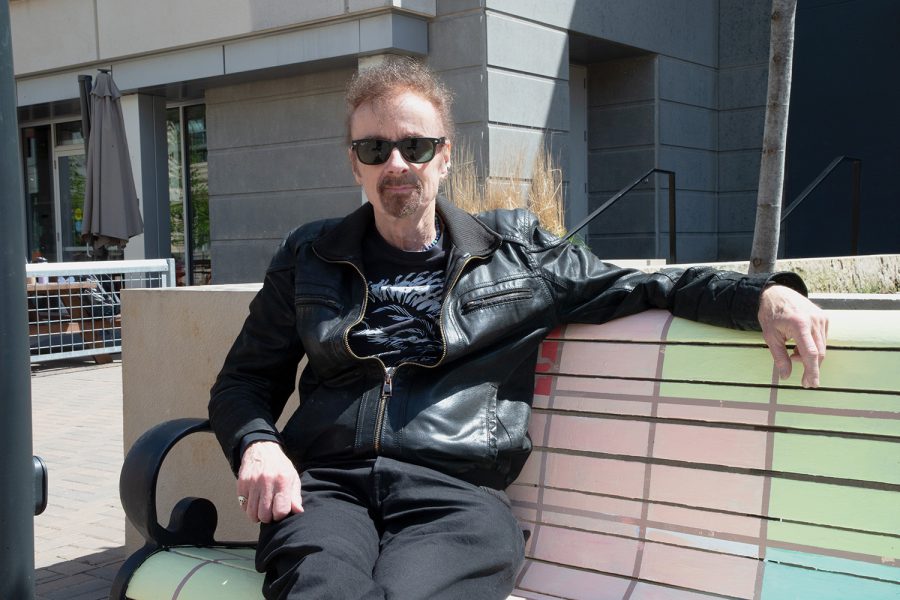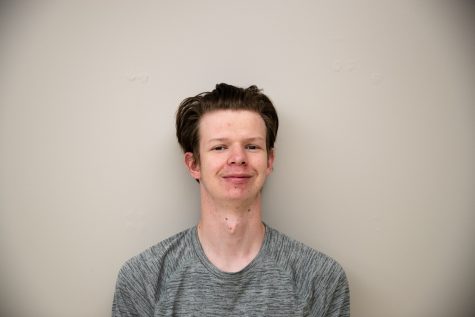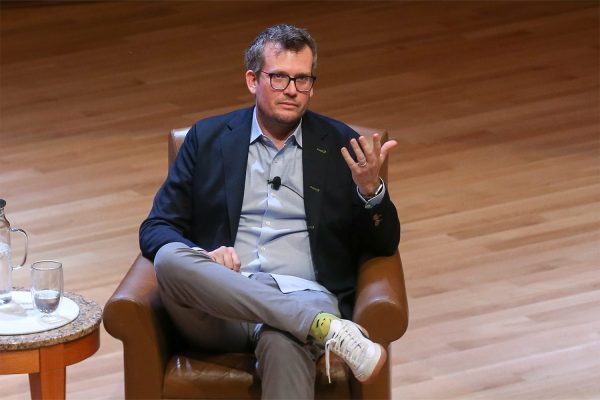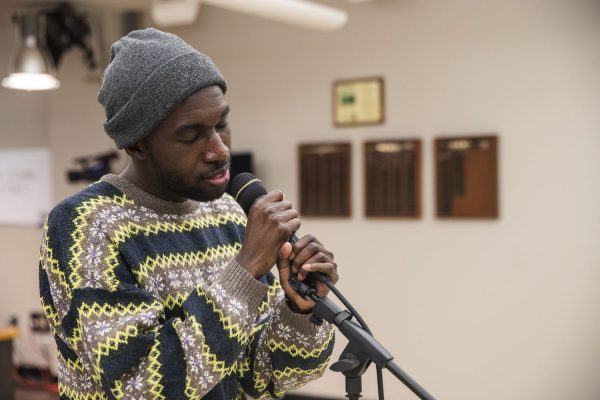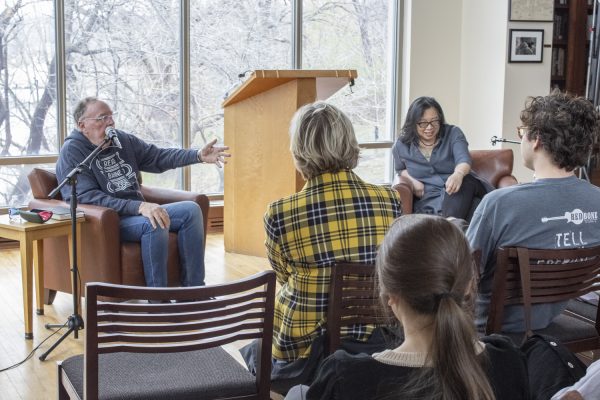Internationally acclaimed author and Iowa Writers’ Workshop alum T.C. Boyle to return to Iowa City
One of the most prolific alums to graduate from the Iowa Writers Workshop, will visit on May 5. Boyle is still writing well-received content — his most recent book, ‘Talk to Me,’ takes place at the Iowa Writers’ Workshop.
University of Iowa Workshop Alumn T.C. Boyle poses for a portrait on the Iowa Pedestrian Mall in Iowa City, Iowa on May 4, 2022.
May 4, 2022
Thomas Coraghessan Boyle was a student at the Iowa Writers’ Workshop in 1974 when he discovered that humans were trying to teach apes’ sign language. This caused him to question the social order enforced by humans that lock Homo sapiens to the top rung, and more specifically play with the concept of apes developing their own language.
This caused him to write the short story Descent of Man in 1979, and, more recently, his book Talk to Me, released in May 2021. On May 5, at 7:30 p.m., he will return to Iowa City to give a talk at the Englert Theatre, where he will discuss his latest work and his experience as a successful author.
Boyle, often known by the penname T.C. Boyle, said that when he first began as an author, absurdist works –– specifically ones with a good sense of humor –– inspired him.
“Samuel Beckett, and short stories by people like Donald Bartholomae and Robert Coover, they had a really wild sense of humor that appealed to me, and it was kind of surreal and that was the way my brain worked,” Boyle said.
Many writers, Boyle joked, “know they want to be writers from the womb.” For him, however, it was not such a clear-cut path. Boyle initially fell in love with music, specifically, the saxophone, as well as fine arts. It was always clear to Boyle that he loved the arts but didn’t find an appreciation for writing until college.
In his sophomore year of college at the State University of New York at Potsdam, he found his love for writing. He explained that he initially went to SUNY Potsdam for history, however, upon taking an English class and reading the works of Flannery O’Connor, he decided to double major.
RELATED: Former UI visiting professor finds success in freelance writing
Boyle explained that he challenges himself to do something different with every story. His style, he said, “is him” –– it is whatever consumes him at that point in time.
“I just wanted to make art because it’s so exciting to me. I’ve never found the end of it yet,” Boyle said. “Every story I write comes out of nowhere. I don’t know what it’s going to be, it just begins, and I follow it.”
Boyle has not forgotten his origins as a musician, either. He explained, that whether he’s reading, writing, or working on something else, he’s always listening to music. He both needs and cherishes the background noise and has found that classical and jazz music help him in his writing.
In addition, Boyle, who has been writing for nearly 50 years, believes that books on writers’ craft are, “to put it kindly, useless.” He explained that like a writer’s work, a writer’s process is completely individualistic, and are not particularly transferable.
It is for that reason Boyle believes that writers’ crafts books can be interesting insights into a specific author’s style but cannot function as a guidebook of universal writing rules.
“All books, even if they’re by your very favorite author and hero or heroine, about writing, are completely useless, utterly,” Boyle said. “This is how your favorite writer does his or her work. Okay, great — but it really has nothing to do with you.”
Boyle currently resides in Santa Barbara, California, which allows him to immerse himself in nature. When he’s not writing, Boyle enjoys hiking, kayaking, and going to the beach. For him, it’s important to keep himself stimulated, and said that it is important to spend time both writing and living.
“I only write during a certain period of time, and when that is done for the day, then I do something else and don’t think about it consciously,” Boyle said. “Although I think, probably my unconscious mind is working on the problems of the narrative that I’m doing.”



